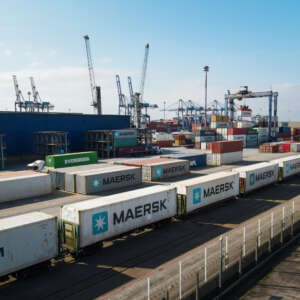Students and teachers from Ilha de Amparo and Piaçaguera visited historical sites and museums in the capital of Paraná.
Last Friday (29), students from the Antônio Paulo Lopes State School, located on Amparo Island in Paranaguá Bay, took a trip to Curitiba with the support of TCP. The trip is a celebration of the end of the renovation of the school carried out by TCP and completed at the end of last year.
The group, made up of 28 students between the ages of 10 and 16, who are in the 6th to 9th grades of Elementary School II, and the school’s teachers, traveled from the islands of Amparo and Piaçaguera to Paranaguá by boat, where they took a bus to the city of Curitiba. Arriving in the capital, they visited the Passeio Público, the Rosa Cruz Museum and the Science Park. All the sites visited were strategically chosen by the school’s teaching staff, based on the teaching project for each subject area.
This was the school’s first trip away from the coast since it opened in 2012. For principal Cecilia do Rocio Correa, this trip is extremely important for the students. “For the school, this trip is the realization of a dream. Many children are having the opportunity to visit Curitiba for the first time, and being able to show them, in practice, some of what they learn at school really stimulates their learning.”
Supporting this visit is part of TCP’s commitment to the community. For TCP’s institutional superintendent, Allan Chiang, providing experiences like this for the community is fundamental. “This initiative provided access to education and culture for the children of the Parnanguara community. This action reinforces the Terminal’s commitment and effort to promote education and the well-being of communities,” Chiang said.
School refurbishment
In 2022, TCP, in partnership with Fundepar (Instituto Paranaense de Desenvolvimento Educacional) and the state government, built a new structure. The school previously operated in a wooden room, and today the new space has 70m², divided into two classrooms, an administration room, a kitchen and toilets (male and female).
The demand for the Antonio Paulo Lopes state school arose as a result of the participatory socio-environmental diagnosis (DSAP) carried out as part of the environmental education program for the community, linked to TCP’s environmental licensing. In this DSAP, the communities surrounding the Terminal were consulted and, in this dialogue, the need to build a school in Amparo was presented.
The construction carried out by the Terminal gave the children of Amparo Island access to Primary School II, in a structure capable of catering for the students and teaching staff, and enabling access to education and the development of the community.



